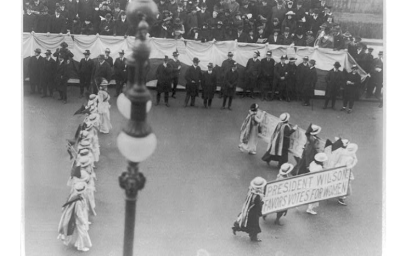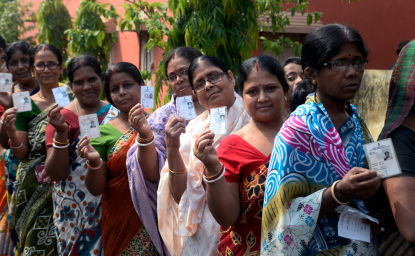Sarah B. Barnes, Project Director & Women and Gender Advisor, Maternal Health Initiative
"It’s been predicted that it’ll take another 100 years to reach gender parity in the world. It’s also been predicted that COVID-19 will set women’s progress back decades due to high rates of unemployment in female-dominated fields and increased caregiving responsibilities. Despite these realities, I am hopeful that due to women’s exceptional leadership, innovation, and engagement during the current pandemic, women will advance more rapidly than predicted, so that in 100 years not only will we reach gender parity, but we will also live in a world where female characteristics of leadership are revered and emulated throughout all aspects of public service."
Dr. Haleh Esfandiari, Director Emerita and Fellow, Middle East Program
"When it comes to women’s rights, their roles and gender equality in the next hundred years, I am an optimist. In general I do not expect a reversion to the kinds of problems women faced in the early decades of the 20th century. We continue to see all around the world, women keenly aware of discrimination, sexism, racism and human rights violations against them in the social, political and legal spheres. There has come into being a women's global network and there is determined solidarity among women to climb the ladder and break the glass--or concrete--ceiling.
I predict great achievements for women around the world in the coming decades: more women serving as heads of state, heads of government, and in cabinets, and more women in decision-making positions at the state and local level in the Americas, Africa, Asia and the Middle East. We will see more women thriving in the private sphere, running large and small businesses. There will be more women as Nobel prize winners--not only the peace prize but also prizes in literature and in the sciences. In the coming century women will overcome every hurdle and achieve total equality; and women's voices will be heard across the globe. The next hundred years will be remembered as the century for women and by women. And I am sure women will not return the compliment of past centuries and leave the men behind."
Philippa Strum, Global Fellow and Former Director, Division of United States Studies, Woodrow Wilson Center
"If someone had suggested, when I was a child in the World War II era, that I would see women sitting on the U.S. Supreme Court and in the U.S. Congress, or serving as prime ministers and presidents of other countries, that would have been shrugged off as unbelievable. Today, however, the move of women into public service at the highest levels is on a one-way trajectory. It is far from uncontested, it is far from complete, and there will undoubtedly be many glitches along the way, but it is unstoppable.
I am working on a book about Ruth Bader Ginsburg's litigation in the 1970s before the all-male U.S. Supreme Court, which had never had a woman on the bench and where women attorneys were still a rarity. Today, Justice Ginsburg and two other women sit on that court; the chief justice of ten American states' highest courts is a women; women sit on a majority of the world's high courts, and a woman is the chief justice in some of them (Australia, Sudan, Israel, Zambia, Norway, Lesotho and New Zealand, for example). Justice Ginsburg recently congratulated a former Harvard Law School graduate on her 40th anniversary as a judge, writing, 'In our law school days, who would believe that women would become judges in numbers?' Slow progress - but the idea that women belong at every level of public life is one that is here to stay."



